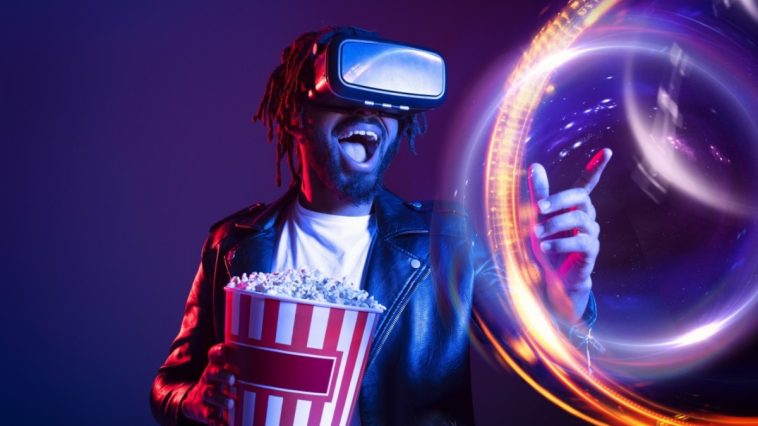Virtual reality (VR) is no longer a futuristic concept confined to science fiction; it’s a rapidly evolving technology that’s poised to revolutionise the entertainment landscape as we know it. By immersing users in simulated environments, VR offers experiences that are more interactive, engaging, and emotionally resonant than traditional forms of entertainment.
Gaming Transformed
One of the most obvious beneficiaries of VR technology is the gaming industry. VR headsets and motion tracking systems transport players into the heart of the action, allowing them to physically interact with the virtual world. Imagine exploring fantastical realms, battling alien hordes, or solving puzzles in immersive environments that respond to your every move.
We’ll see VR expand into a number of other gaming-related industries, such as online casinos. Here, players will be able to enjoy activities like online pokies for real money by using their headsets, providing a truly unique experience.
Cinematic Experiences Reimagined
VR is also set to transform the way we experience movies and storytelling. Instead of passively watching a film on a screen, viewers can become active participants in the narrative. Imagine stepping into the shoes of your favourite characters, exploring the world they inhabit, and witnessing events unfold from their perspective.
VR cinema offers a level of immersion and emotional connection that traditional movies simply can’t match. It allows viewers to feel like they’re truly part of the story, making the experience more engaging and memorable.
Live Events and Concerts
VR has the potential to revolutionise live events and concerts as well. Imagine attending a concert from the comfort of your own home, feeling like you’re front row center with a 360-degree view of the stage and crowd. VR can also enable virtual meet-and-greets with artists, backstage access, and other exclusive experiences that would be impossible in a traditional setting.
Sports fans can also benefit from VR technology. Imagine watching a game from the best seats in the house, feeling the energy of the crowd, and even interacting with virtual replays from multiple angles.
Beyond Entertainment: Applications in Education and Therapy
The applications of VR extend beyond entertainment. In the field of education, VR can provide immersive learning experiences that make complex concepts more accessible and engaging. For example, students can explore ancient civilizations, dissect virtual organisms, or travel to distant planets without leaving the classroom.
VR is also being used in therapeutic settings to treat a variety of conditions, including phobias, anxiety, and post-traumatic stress disorder (PTSD). By exposing patients to controlled simulations of their fears, VR therapy can help them overcome their anxieties in a safe and supportive environment.
The Future of Entertainment
In conclusion, virtual reality is not merely a passing trend; it’s a technological revolution that will fundamentally change the way we experience entertainment, education, and even therapy. By immersing us in new worlds and experiences, VR has the power to enrich our lives, expand our horizons, and connect us in ways we never thought possible. The future of entertainment is virtual, and it’s an exciting future indeed.




